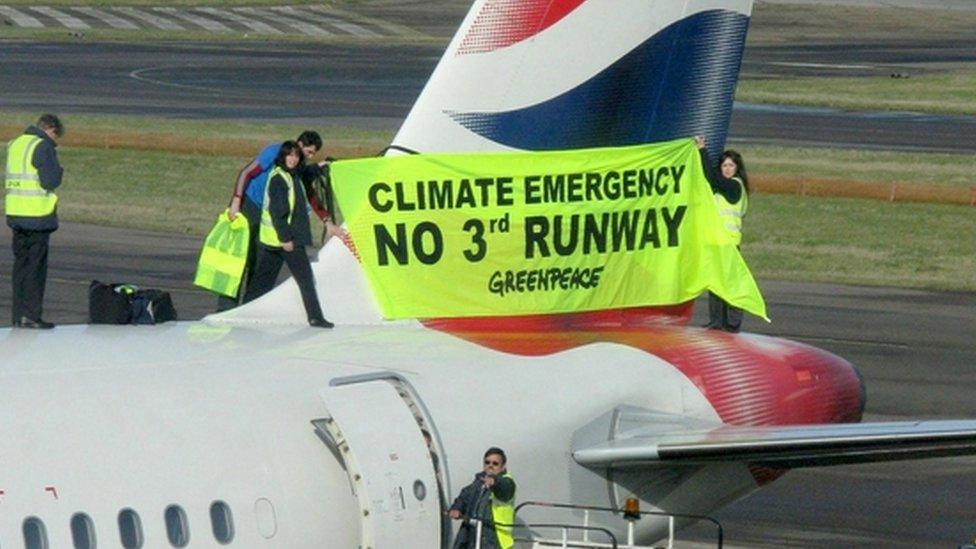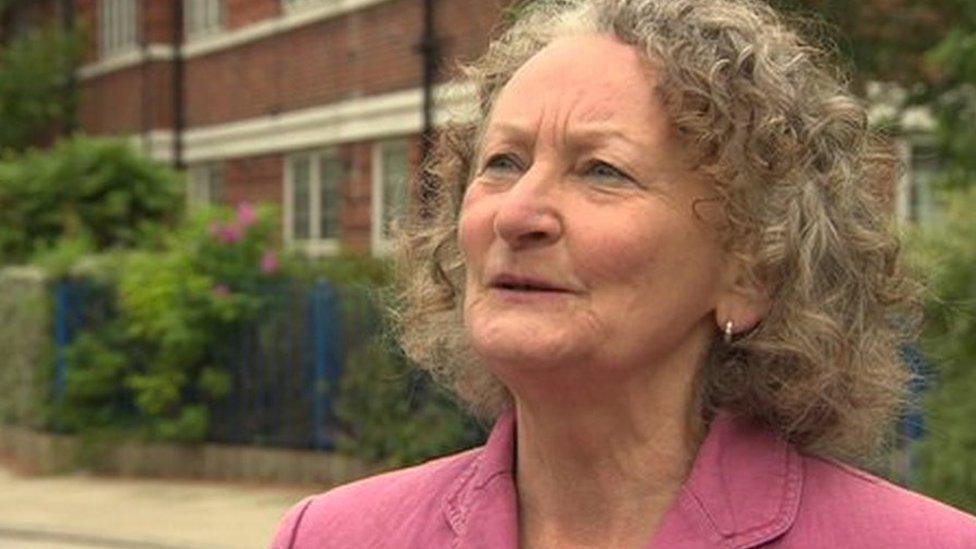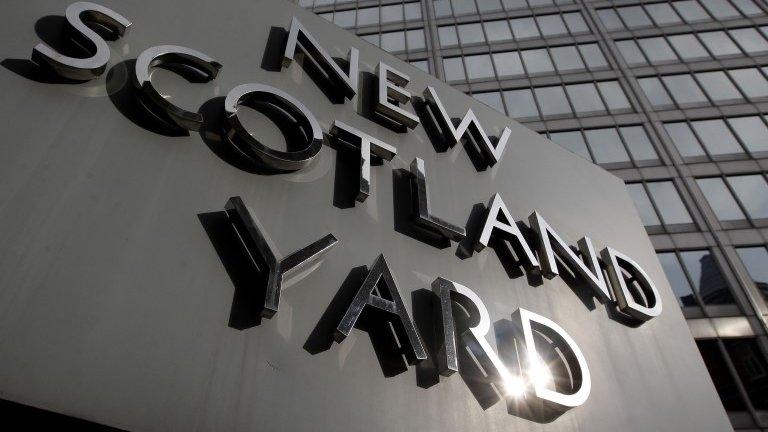Scotland Yard accused of hacking campaigners' email accounts
- Published

Greenpeace activist Colin Newman is one of those allegedly hacked by Scotland Yard
The police watchdog is investigating whether Scotland Yard detectives used hackers in India to target campaigners, including Greenpeace organisers.
The claim was made in a letter from a purported whistleblower who says hundreds of email accounts were monitored without legal authority.
The letter claims officers shredded documents to cover up the monitoring, despite being ordered to preserve them.
Scotland Yard says the allegations in the letter are "deeply troubling".
A spokesman for the IPCC said: "We have begun an independent investigation related to anonymous allegations concerning the accessing of personal data.
"We are still assessing the scope of the investigation and so we are not able to comment further."
If the alleged whistleblower's allegations are true, the hacking would be unlawful if personal communications were intercepted for any other reason other than to combat major crime, terrorism or some other serious public need. Such monitoring must be approved by the home secretary.
'Illegally accessing'
A public inquiry into undercover policing was announced in March 2015 following controversy surrounding the conduct of some officers.
And last month, the IPCC revealed it was investigating whether the National Domestic Extremism and Disorder Intelligence Unit inside Scotland Yard had shredded documents, despite orders to preserve them for the inquiry.
Green Party peer Baroness Jenny Jones has now revealed that she received a detailed letter days later, making new and more extensive allegations against the Met.
It says that the document shredding had been happening "for some time and on a far greater scale" than the IPCC had been aware of in order to cover up illegal gathering of intelligence on protest groups.
"For a number of years, the unit had been illegally accessing the email accounts of activists," says the letter.
"This has largely been accomplished because of the contact that one of the officers had developed with counterparts in India who, in turn, were using hackers to obtain email passwords."
The writer claims several hundred campaigners were targeted and officers would be tasked to read the emails and pass on any contents deemed valuable.
While the letter is anonymous, it contains detailed information to support the writer's assertion that he or she is a serving detective and provides the email passwords of 10 people who were allegedly targeted.
Six of the 10 have confirmed to lawyers acting for Baroness Jones that the passwords were correct or almost identical.
Four of those listed work for Greenpeace, with one of them in a senior position.
One of the 10 activists told the BBC their password may have still been in use as recently as late 2015 or early 2016.

Direct action protests: Greenpeace demonstrators willing to risk arrest
Colin Newman, a volunteer for Greenpeace in Cornwall, is on the list. He regularly dresses up as a fish to draw attention to threats to the oceans.
The former civil servant told the BBC he had been arrested twice for taking part in direct action and cautioned for trespass in a protest against coal-fired power stations.
But he stressed that he neither considered himself anti-police nor "a threat to national security". He said he had attended training sessions with police forces to help them understand and manage peaceful protests by campaigners like him.
"When I was told I was on this list I was at first surprised, then angry and then felt violated," he said.
"I trust the police. But some of my emails were very private - they include details of counselling. I have had sleepless nights."
Baroness Jones said: "This illegal hacking is one of the worst cases of state snooping that I've ever heard. The personal information within the letter is accurate and it could only have been obtained illegally.
"There is more than enough to justify a full scale criminal investigation. It is completely unacceptable that the police can stick their noses into the lives of innocent people without a shred of evidence that they are involved in terrorism or serious crime."
A spokesman for Scotland Yard confirmed that it was taking the allegations seriously.
"All possible steps are being taken to ensure that all relevant material and associated computer systems are preserved to assist the IPCC's investigation," said the spokesman. "Whilst at this stage the allegations have not been thoroughly investigated, they are deeply troubling and the MPS will provide the IPCC with its fullest possible support. "
Next month the Metropolitan Police is expected to face pressure at a rare public preliminary sitting of the undercover inquiry over claims that it is failing to co-operate with the already-delayed probe.
In a statement, Lord Justice Pitchford, the chairman of the inquiry said: "We would welcome the opportunity to speak with the author of the letter and I would urge that person to contact the Inquiry on terms of confidentiality."
- Published9 February 2017

- Published12 March 2015
